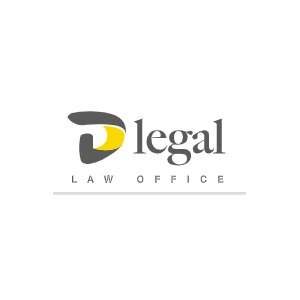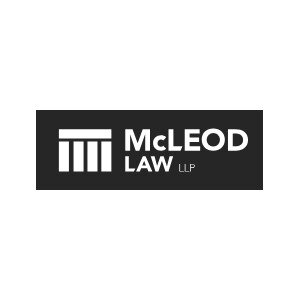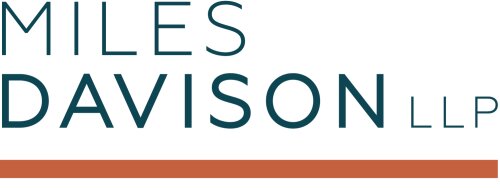Best Conveyancing Lawyers in Calgary
Share your needs with us, get contacted by law firms.
Free. Takes 2 min.
Free Guide to Hiring a Real Estate Lawyer
List of the best lawyers in Calgary, Canada
About Conveyancing Law in Calgary, Canada
Conveyancing is the legal process of transferring property ownership from one party to another. In Calgary, Alberta, this process generally involves residential and commercial real estate transactions, including buying, selling, refinancing, or transferring titles. The process is highly regulated to protect all parties involved and ensure that the change of ownership is legally valid. Conveyancing transactions must comply with both federal and provincial laws, as well as local Calgary requirements. Typically, real estate lawyers or conveyancers handle the legal documentation, perform searches, collect fees, and register interests with the Land Titles Office.
Why You May Need a Lawyer
While some individuals might attempt to handle real estate transactions independently, engaging a qualified conveyancing lawyer is essential in most situations. Common scenarios where legal assistance is highly recommended include:
- Purchasing or selling a home or condo in Calgary
- Transferring property between family members
- Refinancing an existing mortgage
- Correcting title issues or resolving disputes over property boundaries
- Acquiring commercial property or land for business purposes
- Navigating foreclosures or powers of sale
A lawyer ensures all contracts are legally sound, deadlines are met, and your property rights are fully protected throughout the transaction.
Local Laws Overview
Conveyancing in Calgary is governed by Alberta’s legal framework, with several laws and regulations directly influencing the process. Key legislation includes:
- Land Titles Act (Alberta) - Governs how property is registered, transferred, and encumbered.
- Law of Property Act - Sets rules about how land can be bought, sold, or transferred.
- Dower Act - Requires the spouse of a property owner to consent to the sale or transfer of homestead property.
- Real Estate Act - Regulates real estate professionals, transactions, and the role of lawyers in conveyancing.
Calgary also has unique zoning bylaws, property taxes, and local requirements, such as compliance with restrictions on land use, checking for outstanding permits, and ensuring all municipal tax payments are up to date before property transfer. Lawyers must conduct due diligence, including title searches, registration of transfers and mortgage documents, and confirm disbursement of funds as part of safe, legal conveyancing.
Frequently Asked Questions
What does the conveyancing process in Calgary typically involve?
It involves preparing and reviewing sale or purchase agreements, conducting title searches, arranging for the transfer of funds, registering new ownership with the Land Titles Office, and handling closing documentation.
Do I need a lawyer to buy or sell property in Calgary?
Yes, Alberta law requires a lawyer to handle most aspects of conveyancing, including registration of property and mortgage documents with the Land Titles Office.
How long does conveyancing usually take?
A standard residential transaction takes anywhere from a few days to a few weeks, depending on the complexity of the transaction and if there are any unexpected legal issues.
What are the costs involved in conveyancing in Calgary?
Costs include legal fees, registration fees at the Land Titles Office, title insurance, and possible disbursements for searches and documentation. Fees vary based on transaction complexity.
Can I conduct a title search on my own?
While possible, it is best handled by a lawyer who knows what to look for, such as liens, encumbrances, easements, or unpaid municipal taxes affecting property title.
What is a Real Property Report and do I need one?
A Real Property Report (RPR) is a legal document showing property boundaries and structures. It is typically required for residential sales to ensure compliance with municipal zoning bylaws.
What is land transfer tax and is it applicable in Calgary?
Unlike many provinces, Alberta does not charge a land transfer tax, but there are fees for registering documents with the Land Titles Office.
What happens on the closing date?
The lawyer coordinates the transfer of funds, registers the new title, provides keys to the buyer, and ensures all contractual obligations are met.
What if there is a problem with the title after the sale?
Title insurance can help protect buyers against certain title defects. A lawyer can assist in resolving title problems or making a claim on title insurance.
Can conveyancing be handled remotely?
Many documents can be prepared and signed electronically, but some steps, like identity verification and witnessing signatures, may require in-person appointments depending on specific circumstances.
Additional Resources
There are several reputable organizations and governmental bodies providing information and assistance with conveyancing in Calgary:
- Alberta Land Titles Office - For property registration and title information
- Law Society of Alberta - To confirm lawyer credentials and find legal professionals
- Real Estate Council of Alberta (RECA) - For guidance on real estate transactions and professional conduct
- Service Alberta - For information on buying or selling property and consumer protection
- Calgary Legal Guidance - Offers limited free legal advice and resources for property matters
Next Steps
If you are considering buying, selling, or transferring property in Calgary, the next steps are:
- Collect all relevant property documents, such as agreements of purchase and sale, mortgages, and identification
- Contact a qualified conveyancing lawyer in Calgary with experience in real estate law
- Ask for an initial consultation to discuss your transaction and get a quote for legal fees
- Work with your lawyer to gather required information, sign documents, and meet all deadlines
- Stay informed by asking questions and reviewing each step of the conveyancing process with your lawyer
Seeking legal help early can save time, money, and avoid unexpected complications, ensuring your property transaction proceeds smoothly and securely.
Lawzana helps you find the best lawyers and law firms in Calgary through a curated and pre-screened list of qualified legal professionals. Our platform offers rankings and detailed profiles of attorneys and law firms, allowing you to compare based on practice areas, including Conveyancing, experience, and client feedback.
Each profile includes a description of the firm's areas of practice, client reviews, team members and partners, year of establishment, spoken languages, office locations, contact information, social media presence, and any published articles or resources. Most firms on our platform speak English and are experienced in both local and international legal matters.
Get a quote from top-rated law firms in Calgary, Canada — quickly, securely, and without unnecessary hassle.
Disclaimer:
The information provided on this page is for general informational purposes only and does not constitute legal advice. While we strive to ensure the accuracy and relevance of the content, legal information may change over time, and interpretations of the law can vary. You should always consult with a qualified legal professional for advice specific to your situation.
We disclaim all liability for actions taken or not taken based on the content of this page. If you believe any information is incorrect or outdated, please contact us, and we will review and update it where appropriate.















